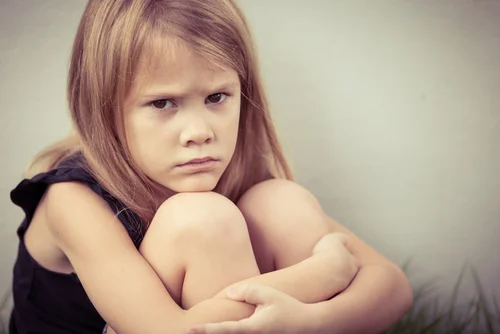Moral Development in Children
/By Joseph Sacks, LCSW
We all want to promote moral development in our children.
This means, for example, that they should think, “I don't want to do ‘X’ because it will hurt my friend’s feelings, and that is wrong.” we shouldn’t want them to think that the only thing wrong with doing ‘X’ is that “My parents will disapprove, get angry or punish me”, because that teaches them that if it weren’t for the punishment, doing wrong is just fine. Disapproval and punishment is an extrinsic effect of misbehavior, whereas hurting someone else's feelings is an intrinsic effect. We want to promote this intrinsic awareness of what's right and wrong as a guide for our child. We do this by description. When a child takes away another child's toy unfairly, don’t say, “Bad boy, no grabbing!” which expresses anger and disapproval and provides an external reason to refrain from the behavior. In other words this shows that the only reason not to grab the toy is that “Mommy will get angry at me.” Instead calmly describe, “You took his toy, you made him unhappy.” This makes the child aware of the intrinsic effect of his actions on the well-being of others, of their moral value. This type of approach applied over time will generate in the child a true awareness of right and wrong, and he will learn to behave appropriately, whereas anger and disapproval teaches the child, “I can do anything I want as long as mommy doesn't get angry,” in other words, “As long as I don't get caught.” We shouldn’t want our children thinking this way!
By the same token, giving rewards for good deeds can sometimes have a similar effect. Let's say a child shares a toy and gets a star on his ‘good deeds’ chart and when he gets 10 stars he gets a prize. That teaches the child that the reason it's good to share a toy is because you get stars and prizes! It actually prevents him from thinking the truth, that it's intrinsically good to perform acts of kindness to others. Therefore when a child does something good instead of providing an extrinsic reward, describe what he did, "You shared the toy, you made him happy, now he can play with it too.” This teaches the child that the value is in being kind to others, and that's what's important. I know it sounds counterintuitive, but for this reason when a child does a good deed such as sharing a toy we should refrain from saying, “Good boy!” Such praise teaches the child that the reason we do good deeds is to get praise from our parents, therefore if there's no praise she thinks there's no reason to perform a good deed. We don't want him thinking that way.
Instead, for moral development in children, we want her to think that the purpose of good deeds is to enjoy performing acts of kindness.
Furthermore “Good girl!” is an evaluative value judgment. It in effect says, “I am judging you as good.” This creates what is called other-esteem, where the child's positive sense of self is dependent on the judgment of others, which is a fragile and insecure position to be in because others can change their opinion of you at any time, and then your sense of self might be dashed.
In order to create true self-esteem we need to encourage the child to judge himself, to evaluate himself and to conclude for himself how ‘good’ he is. We do this by describing, “You shared your toy, you made her happy, you were kind to your guest.” Not only does this teach the intrinsic value of kindness, but it allows the child to evaluate her own actions and conclude by himself that she is good and worthy, and that is true self-esteem. For a detailed discussion of the pitfalls of praise, click here.
For a discussion of how to deal with children who act selfish, click here.
Please be advised that this represents a very high level of parenting skill not so easily attained. In other words, there are a many and much worse things a parent can do than say, “Good boy”! These words are not going to truly harm the child, but they are just not ideal.
So please have patience with yourself and implement these ideas about moral development in children gradually.
Please feel free to peruse the rest of my informative blog, the specialties on this website, or download one of my interesting free reports. If you are facing challenges with your child, and would like guidance or treatment from a child psychotherapist in lower Manhattan, you may give me a call at 646-681-1707 for a free 15-minute consultation. I look forward to speaking with you!






























